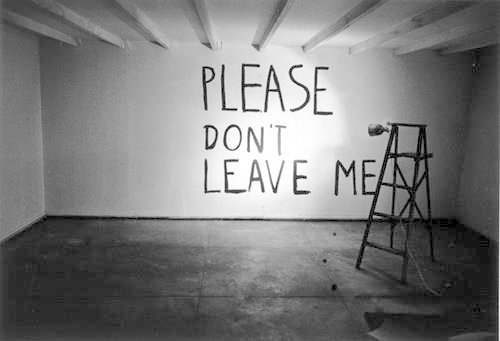
Abandonment is awful. Nobody likes it.
When therapists speak of “abandonment issues”, they’re generally talking about childhood.
Real or perceived abandonments by one’s parents, when one is a child, can have lasting effects. As Italian athlete Mario Balotelli put it, “They say that abandonment is a wound that never heals. I say only that an abandoned child never forgets.”
From the vantage point of a child, that’s possibly true. But children are not adults. When you’re a child, you truly are helpless – and you don’t understand much. But as an adult, there’s a huge difference. As an adult, you’re capable of self-reliance and independence. If you feel that you’re not, you still are. Maybe you never got past that childhood feeling of helplessness and dependence. But it’s a curable problem. And you can always start working on it now.
It saddens me when I hear therapists tell their clients they must relive their abandonment issues, over and over again. Why must you relive them? Can’t you just acknowledge them? Why do you have to relive them for the mere sake of going through them again? Reliving the past might be a good deal for the therapist. But why or how is it supposed to be a good deal for the person enduring it?
Abandonment can mean many things to an adult. To an adult, it means somebody no longer loves you. Ouch! Or sometimes people leave you against their will, as in sudden or premature death. Truly terrible. Or there’s death in old age. Loss is a terrible thing. When you love someone as an adult, you love them because they are special to you. When the impact of the loss hits, it’s devastating at first, and often for a while.
It’s like a hole blown in your life. That’s the emotional form the sense of abandonment takes.
On some level you might always feel the loss. But the fact remains: you’re still an adult. You’re able to make rational distinctions no child could ever be expected to grasp. When you’re four, six or ten, you can’t be expected not to take it personally if your father or mother walks out on the family, or otherwise exits your life for reasons you do not understand. But as an adult, you have choices due to the reality of your nature as a self-reflective, self-responsible entity. You’re able to think, chart new courses, reinvent yourself and do all kinds of things no child could ever do. Therein lies the hope, always standing side-by-side with the abandonment and loss.
When a loss or abandonment in adulthood reminds you, even subconsciously, of similar pain you experienced in childhood, it’s a good thing to know — and it’s worth noting. But you don’t have to relive your experiences from age three or twelve in order to get through your experiences at age twenty-five, fifty or seventy-eight. We all have different perspectives at different points in life, and it’s important to apply those perspectives to what you know, and to what you’re experiencing in the present. Those who fail to learn the lessons of history are doomed to repeat them, but living in the past does not teach you anything.
Life is lived here and now, not in the past. The past is part of who we are. But it’s who we are, and what we do, in the present that determines everything.
Follow Dr. Hurd on Facebook. Search under “Michael Hurd” (Rehoboth Beach DE). Get up-to-the-minute postings, recommended articles and links, and engage in back-and-forth discussion with Dr. Hurd on topics of interest. Also follow Dr. Hurd on Twitter at @MichaelJHurd1
Check out Dr. Hurd’s latest Newsmax Insider column here!
Dr. Hurd’s writings read on the air by Rush Limbaugh! Read more HERE.
